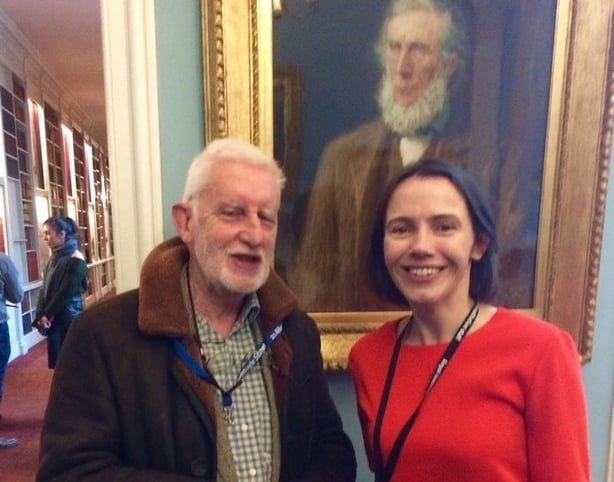Last night's special edition of Mooney Goes Wild is coming from the Royal Institution of Great Britain ahead of the broadcast on BBC 4 of their famous Christmas Lectures series.
Started by Michael Faraday in 1825, and now broadcast on national television every year, the Christmas Lectures are the UK's flagship science series.
Faraday's objective was to present science to the general public in the hope of inspiring them. On the art of lecturing, he said: "A flame should be lighted at the commencement and kept alive with unremitting splendor to the end" and it worked.
An interest in science became increasingly popular among the public in the 1800s, and not just in London. The medical journal, the Lancet, joked that "Dubliners" knew the coming of autumn by the appearance of advertisements for science lectures on the walls of the city".

This public appetite for science and nature is burning brightly again. Look at Professor Brian Cox’s show out Irish dates in some of our biggest arenas. Our first preference CAO choices for biological and related sciences has gone up by 10% in 2018 or the immense popularity and impact of science and nature series like BBC’s Blue Planet.
In their 194 year history, the Christmas Lectures at the Royal Institute has featured some recognisable voices. Astronomer Carl Sagan’s talk in 1977 was called "The Earth as a planet"
Evolutionary biologist Richard Dawkins presented the Royal Institution Christmas Lectures in 1991 and in 1973 David Attenborough spoke about ‘The language of animals’.

This year is the first time a special Guest Lecturer has been appointed to the prestigious Christmas Lectures. It is Professor in Genetics at The Smurfit Institute of Genetics at Trinity College Dublin, Aoife McLysaght.
For more information on The Christmas Lectures, visit The Royal Institution website here.
Tune into Mooney Goes Wild every Monday, 10pm-11pm on RTÉ Radio 1.
For more information on the show, click here and follow @NatureRTE on Twitter and facebook.com/rtenature on Facebook.
